(5)ソ連兵たちは犠牲者を人間とみなさなかった~戦時下の兵士の心理と性暴力の悲劇
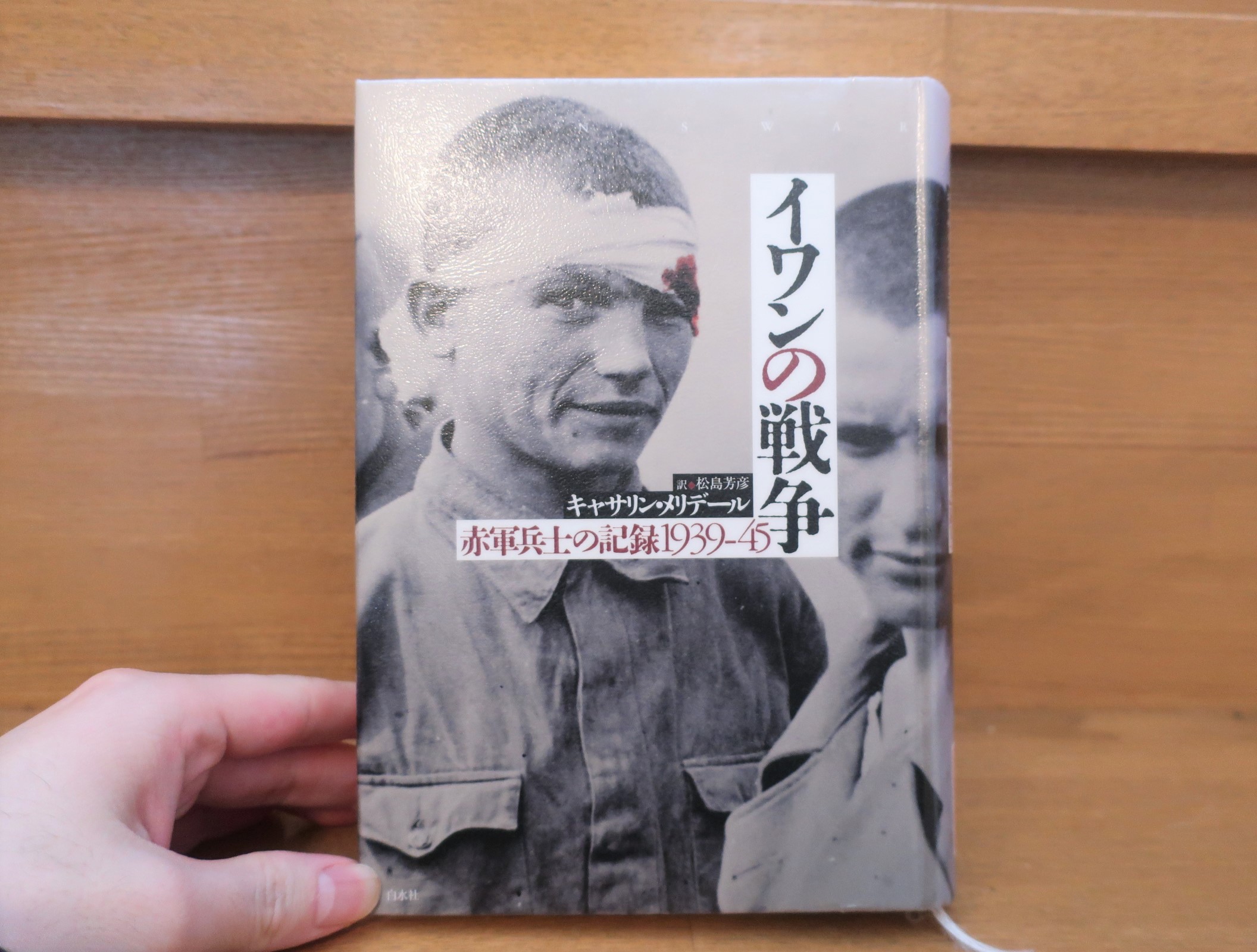
キャサリン・メリデール『イワンの戦争 赤軍兵士の記録1939-45』を読む⑸
今回も引き続き、キャサリン・メリデール著、松島芳彦訳『イワンの戦争 赤軍兵士の記録1939-45』を読んでいきます。
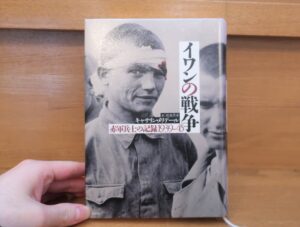
この本では一人一人の兵士がどんな状況に置かれ、なぜ戦い続けたかが明らかにされます。
彼ら一人一人は私たちと変わらぬ普通の人間です。
しかし彼らが育った環境、ソ連のプロパガンダ、ナチスの侵略、悲惨を極めた暴力の現場、やらねばやられる戦争という極限状況が彼らを動かしていました。
人は何にでもなりうる可能性がある。置かれた状況によっては人はいとも簡単に残虐な行為をすることができる。自分が善人だと思っていても、何をしでかすかわからない。それをこの本で考えさせられます。
では早速始めていきましょう。
兵士たちは犠牲者を人間とみなさなかった
それまでドイツ軍の猛攻にさらされ、尋常ならざる犠牲を出したソ連でしたが、スターリングラードの戦いから形勢が逆転し反転攻勢に出ます。
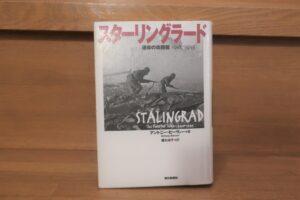
彼らが目指すはヒトラーの本拠地ベルリン。ソ連兵たちはその行く先々で暴虐の限りを尽くしました。
たしかに侵攻してきたナチスの残虐行為は悲惨なものでした。それに対し目には目をとばかりにソ連兵は侵攻した先々で略奪、殺人、レイプを繰り返したのです。
赤軍の残酷な報復は集団で行われた。この地で意味を持ったのは、赤軍兵士とドイツ人の犠牲者の関係ではなく、戦友同士の友情であり、恐怖の記憶を共有する兵士たちが、その記憶と向き合う関係だった。
兵士たちは犠牲者を人間とはみていなかった。一九四五年二月、ある兵士が友人に書いている。「奴らはロシア語を一言も話さない。でも、おかげでこちらはやりやすい。四の五の言う必要はない。ナガンを突き付けて伏せろと言う。それから仕事を済ませて、さよならだ」。
戦争はここまで人間を損ない、暴力へといざなった。実際に起きた事態は、うっ憤ばらしの域をはるかに超えていた。プロイセンでの兵士の仕業は、憎悪だけではなく希望や情念の発露でもあった。戦友とのかけがいのない絆から生まれる情念、失われた命もチャンスもすべて、もう取り戻せないのだという悲しみが、彼らを突き動かしていた。
ワインやシュナップスの海に溺れても、癒されなかった。憎悪の対象となったのはドイツの婦人や娘だった。西へ向かう道路に彼女たちの遺体が散乱するのに時間はかからなかった。
白水社、キャサリン・メリデール著、松島芳彦訳『イワンの戦争 赤軍兵士の記録1939-45』P352
※一部改行しました
ソ連兵の性暴力
インステルブルクとゴルダプからあふれ出した避難民に追いついたソ連軍の中に、レオニード・ラビチェフという若い士官がいた。彼は数十年後、勇を鼓して自分が目撃した惨事を書き残した。
「女たち、母親やその子たちが、道路の右、左と横たわっていた。それぞれの前に、ズボンを下げた兵隊の群れが騒々しく立っていた」。
吠え立てる群れの中には、この身の毛もよだつ儀式が、人生で初めての性体験となった若者もいただろう。「血を流し、意識を失った女たちを一カ所に寄せ集めた。そして、わが兵士たちは、子を守ろうとする女たちを撃ち殺した」。その間「薄笑いを浮かべた」士官たちが、そばに立っていた。うち一人が「すべてを指示―というより調整―していた。兵隊が一人残らず参加できるようにしていたのだ」。
その夜、ラビチェフと部下は、ドイツ軍が遺棄した救護施設を宿舎にあてがわれた。どの部屋も死体だらけだった。子供や老人、それに明らかに輪姦されたとみられる女性の死体だった。ラビチェフの証言は続く。
「我々は相当疲れていたので、床で死体の間に寝た。既に死体には慣れていた。別の建物では、レイプの後で体を切断された何人もの女性の遺体に遭遇した。一人ひとりの性器にワインのボトルが挿入してあったので、さすがにラビチェフの部下も少し驚いた。
問題は敵側の女性への同情を積極的に否定したことだった。集団の圧力も個人を縛り、犯罪を助長した。ある時、ラビチェフは呼ばれて、何人かのドイツ娘の中から一人を選ぶように言われた。捕われの身である娘たちは脅え切っていた。彼はまず、もし拒否すれば、部下に臆病者と思われないかと心配した。もっとまずいのは、不能者とみられることだった。
白水社、キャサリン・メリデール著、松島芳彦訳『イワンの戦争 赤軍兵士の記録1939-45』P352-353
※一部改行しました
この内容はブログに書こうかどうかも迷ったほどです。ここから述べていく内容もそうです。この本では目を背けたくなるような事実が明らかにされます。
ただ、注意したいのはこうした行為がソ連兵だけのことで、私達には全く関係ないと思ってしまうことです。「ソ連兵が異常なだけだ」というように見てしまうと、この本の意味はまったく異なるものになってしまいます。戦争という極限状態では人間は誰しもこうなりうるということを忘れてはいけません。
兵士の心理と性暴力の悲劇
ナチスはソ連を徹底的に蹂躙しました。国土を焦土に変えられ、信じられないほどの人が殺されました。(独ソ戦の初期に大量の犠牲者が出たのはスターリンによる判断ミスが大きいのですが)
ソ連兵たちはそうした外敵ナチスに対してやり場のない怒りや憎しみを抱いていました。
しかし、彼らが抱えることになった複雑な感情は単に「ナチス憎し」だけではありませんでした。
ソ連では独ソ戦が始まるまでも相も変わらずほとんどの国民が貧しいままでした。しかも戦争が始まると強制的に戦わされ、日々の生活からも引き離されました。愛する人と会うことなど叶うはずもありません。パートナーがいない男性とて、数年にわたり無理やり戦わされ極限状態でその日々を過ごしています。性的な問題がどうしても出てきてもおかしくない状態です。
そんな中進軍したドイツ領では彼らの信じられない光景がありました。
ドイツの町や村はソ連人の彼らが見たこともないような贅沢ぶりだったのです。
ですが贅沢と言っても、それは「ソ連兵から見たら」です。
きれいな家具やもので溢れた部屋、快適な家々。
ソ連兵はプロパガンダ教育によって、ソ連以外のことは何も知りません。彼らはソ連こそ世界で最も繁栄し、他の国々は劣った存在だと思い込んでいました。
しかし実際来て見ると、農村の普通の家ですら彼らが想像もつかない生活水準だったのです。
ソ連兵たちは驚愕します。これまで自分が信じていたソ連とは何だったのか。自分たちがこれまで耐えてきた貧しさは何だったのか。ナチスはこんなにも豊かな生活をしているのになぜわざわざソ連を侵略しにきたのかと不思議に思うほどでした。
彼らはこれまでナチスは絶滅されるべき最悪の存在であると教育されていました。
ソ連兵たちはもう自分を抑えることができません。
破壊で報復を果たし、ドイツの贅沢品を粉砕し、ファシストの富をむさぼる欲求が兵士たちを突き動かしていた。レイプはこれらすべてを同時に満たした。女を罰し、傷ついた男の自信を回復させた。
共犯者の心の絆も強めた。個人ではなく群れとして行動すれば、集団心理から生まれる力がみなぎったし、一人の人間として突出しなくて済んだ。男たちが仲間同士で大勝利を確かめ合う時、レイプは祝祭の儀式と化した。
暴虐に打ちのめされたのは女性だけではなかった。ドイツの男性もまた犠牲者と言えた。多くの女性が、夫や父親の眼前で犯されたのは偶然ではない。彼らは無力な存在として事態を見ているしかなかった。男と女の関係で、これほどの恥辱があろうかという光景に耐えねばならなかった。その意味で男性もレイプの犠牲だった。
一人の女性が、ある法律家の物語をしている。彼はナチ支配下でユダヤ人の妻を守り通した。危険を顧みずに彼女との離婚を拒絶した。ロシア人がやってきた時、彼は再び妻を守ろうとした。ロシアの自動式拳銃が火を吹き、彼の腰に銃弾が撃ち込まれた。彼は血の海に沈み、三人の男が妻を犯すのを見ながら息を引き取った。
白水社、キャサリン・メリデール著、松島芳彦訳『イワンの戦争 赤軍兵士の記録1939-45』P363
※一部改行しました
この箇所も驚きでした。
「暴虐に打ちのめされたのは女性だけではなかった。ドイツの男性もまた犠牲者と言えた。多くの女性が、夫や父親の眼前で犯されたのは偶然ではない。彼らは無力な存在として事態を見ているしかなかった。男と女の関係で、これほどの恥辱があろうかという光景に耐えねばならなかった。その意味で男性もレイプの犠牲だった」。特にここが衝撃でした。
あまりに悲惨すぎて何と言っていいのかわかりません・・・
戦後も続くイワン伝説
仮にヒトラーが一九四一年にモスクワを占領し、スターリングラードが陥落、戦時のソ連政府が瓦解していたら、間違いなくロシア―そしてソ連の大部分―は破滅的な事態に陥っていただろう。
全欧州も、米国でさえも、想像を絶する試練を抱え込んだに違いない。スターリングラード、クルスク、べルリンは、ソ連だけでなく連合国にとっても、かけがえのない勝利だった。
だが、戦いに命を捧げたのはスターリン体制下の人々だった。兵士が自ら望んで戦ったかどうかはともかく、ごく一部を除き誰もが、真理と正義のために戦争をしているのだと信じていた。兵士は多種多様だった。一人ひとり違うイワンがいた。しかし、願いは一つだった。独裁を倒すために戦った揚げ句に、それを上回る独裁が残る結末は本意ではなかった。
スターリン主義の台頭を仕方なく認め、体制を守るために自ら戦い、辛酸をくぐり抜けた人々が、戦後も暴君の君臨を容認した。不幸なことだ。祖国は隷属を免れたが、自らを奴隷化したのだった。
イワン伝説は戦争の渦中に生まれた。それはソビエト情報局のつくりものであったり、戦場の歌や詩、人々が好む逸話であったりした。時には兵士本人でさえ、祖国のために戦う熱血の義勇軍や英雄に自らをなぞらえた。
現実の戦闘は理想とは大違いだった。だが、プロパガンダ屋が創造した木彫りの兵隊像は、戦闘に臨む前や、生き残った者が疲労や動揺を乗り越えるために思い描く便利な手本だった。
素朴な英雄や手練れで命知らずの士官という理想像は、兵士に目的意識を与え、残忍な人殺しを美化するのに役立った。誰も認めたくない犯罪を免責する隠れみのにもなった。
兵士は皮肉屋だったので、伝説化された数々の理想像もいっせいに、下品で自嘲的な冗談のネタになった。イワンたちは武器の扱いに必ずしも熟練していなかったし、自分の肉体ももてあましていた。
最新の党の指示などもってのほかだった。兵士は息苦しい規則や儀式をあざ笑った。だが戦争中のプロパガンダには、人間の根源的な欲求とかみ合う部分もあった。それは、銃声が止んだ後に重要な意味を持った。
召集された兵隊が復員し市民に戻った時、兵士は勇敢で素朴だという先入観のために尊敬を受けた。人には言えない数々の出来事にかかわらず、社会に向ける立派な顔が出来上がっていた。
白水社、キャサリン・メリデール著、松島芳彦訳『イワンの戦争 赤軍兵士の記録1939-45』P423-425
※一部改行しました
ソ連のプロパガンダによる兵士像は自分たちの残虐行為を免責する隠れ蓑にもなりました。
そしてそれは戦争が終わり復員した後も根強く存在し続けました。
ソ連が崩壊したことで今となってはこうした悲惨な事実が明るみに出てくるようになってきましたが、もしそうでなかったら今もなおそうした事実は知られることはなかったかもしれません。
続く
Amazon商品ページはこちら↓
次の記事はこちら

前の記事はこちら

ソ連兵は何を信じ、なぜ戦い続けたのか「独ソ戦に学ぶ」記事一覧はこちら

関連記事

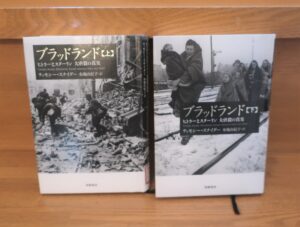



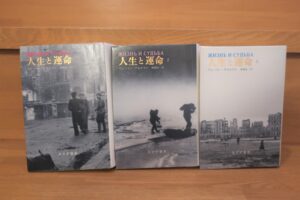
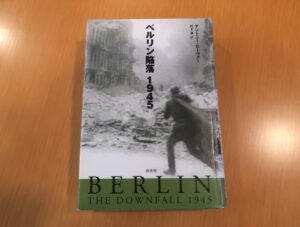

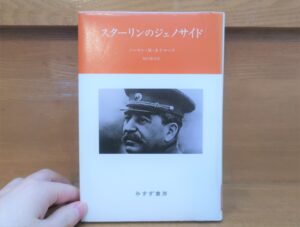



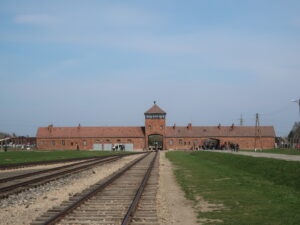



コメント